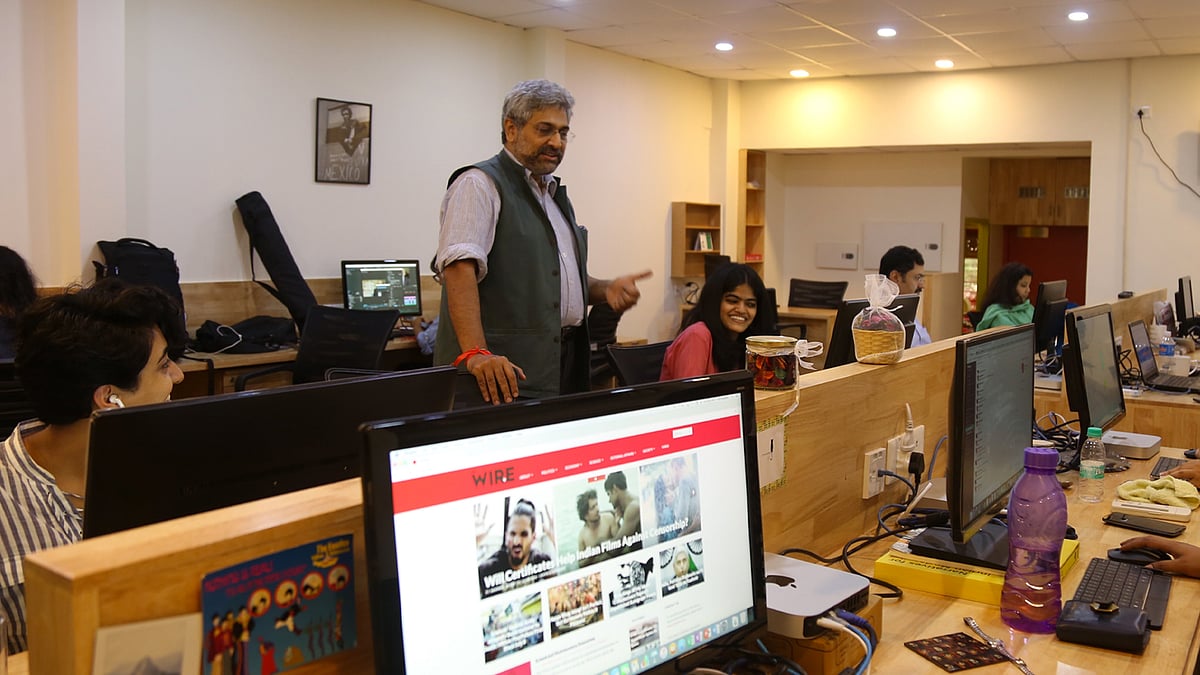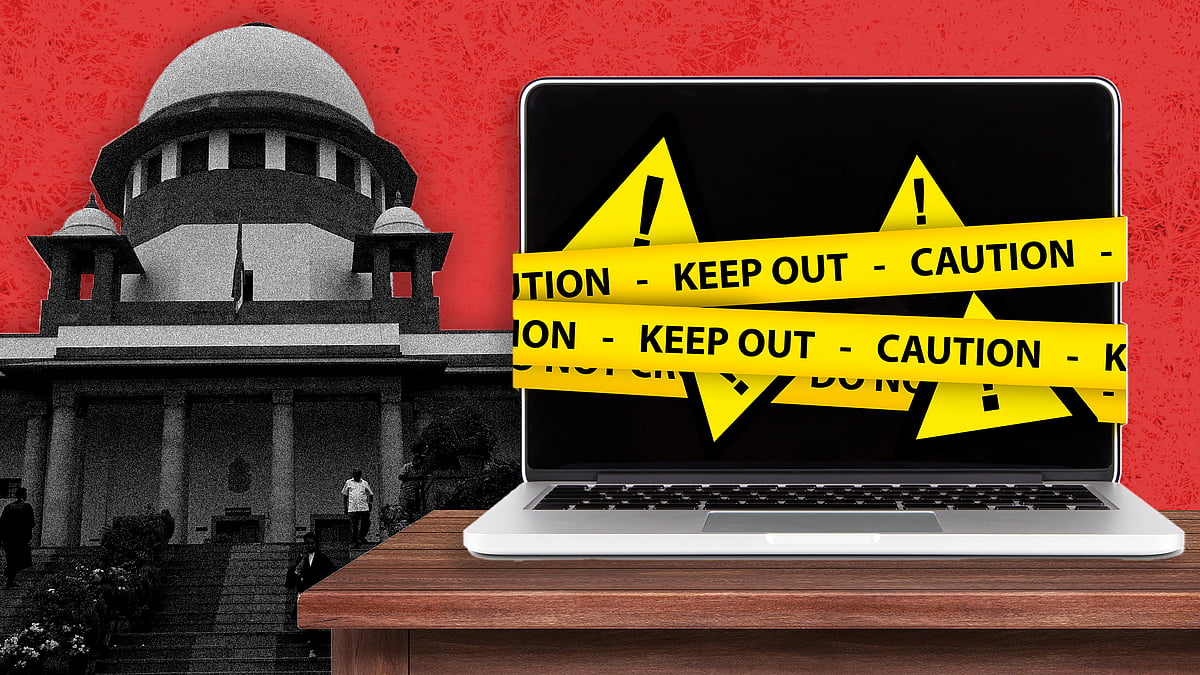Will need to consult with states for guidelines on ‘search and seizure’ of devices: Centre to SC
The home ministry filed an affidavit in this regard on Friday.
The ministry of home affairs has told the Supreme Court it can draw up common guidelines on the search and seizure of electronic devices only after consulting with states. It also said that search and seizure “furthers a legitimate state interest” and is protected by “procedure established by law”, the Indian Express reported today.
These were the contents of an affidavit filed by the ministry on Friday in response to a March 2021 plea asking for such guidelines. The plea was filed by a group of academics including Mukul Kesavan, Ram Ramaswamy, Sujata Patel, Deepak Malghan and Madhava Prasad.
A similar petition had been filed by a media collective in September this year; the Hindu said it was subsequently tagged to this one.
 The Wire raids: 18 devices seized, including a reporter's phone at the news website’s office
The Wire raids: 18 devices seized, including a reporter's phone at the news website’s office SC issues notice after media collective asks for guidelines on ‘search and seizure’ of digital devices
SC issues notice after media collective asks for guidelines on ‘search and seizure’ of digital devices
As reported by Express, the ministry’s affidavit said it was the “constitutional obligation of the government and its law enforcement agencies to ensure law and order” and that it would be “inappropriate to pass any blanket order regarding the return of such documents to persons under investigation”.
Instead, the affidavit suggested that, in applicable cases, “the accused may be allowed to pursue their statutory rights before competent courts under the section of the CrPC in order to seek cloned images of the hard drive of the devices which have been seized by the investigating agency”.
It also cited a manual used by the CBI as having “various provisions dealing with the subject matter” that might “substantially allay the apprehensions of the petitioner”.
But on the actual framing of guidelines, the affidavit said, “If common guidelines are to be adopted, then it may only be adopted after wider consultation among all the stakeholders.” Considering India’s “federal structure” and the existence of the Constitution’s Seventh Schedule, “it would be appropriate to take states in the said consultative process”.
Last September, following a “survey” of Newslaundry’s office by the Income Tax department, the Delhi High Court had said the department must make sure material seized from the office must not be leaked.
“You must make an endeavour because the department is not an ordinary person, but a powerful entity,” the court said. “The concept of confidentiality enshrined under Section 138 of the IT Act shall be abided.” Read the entire report here.
NL Digest
A weekly guide to the best of our stories from our editors and reporters. Note: Skip if you're a subscriber. All subscribers get a weekly, subscriber-only newsletter by default.
